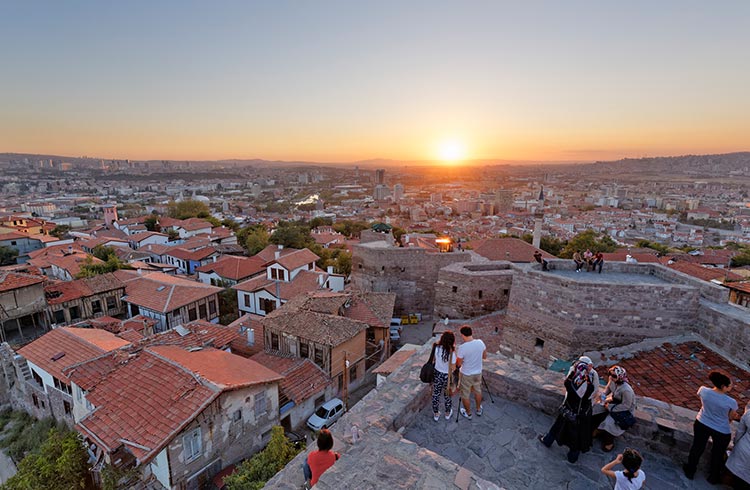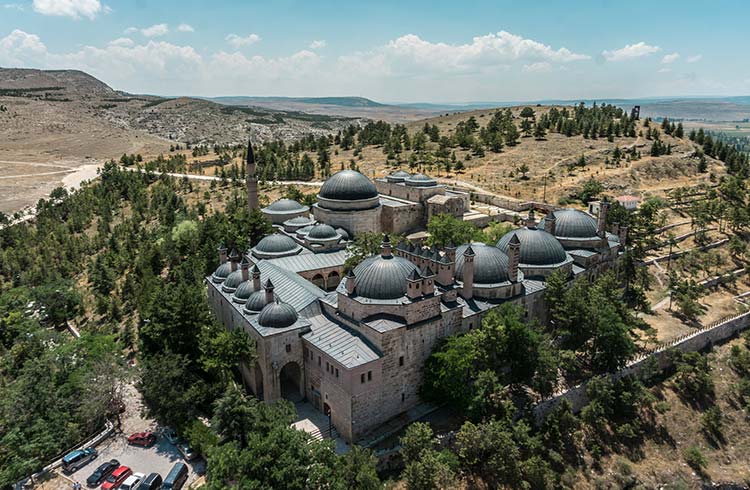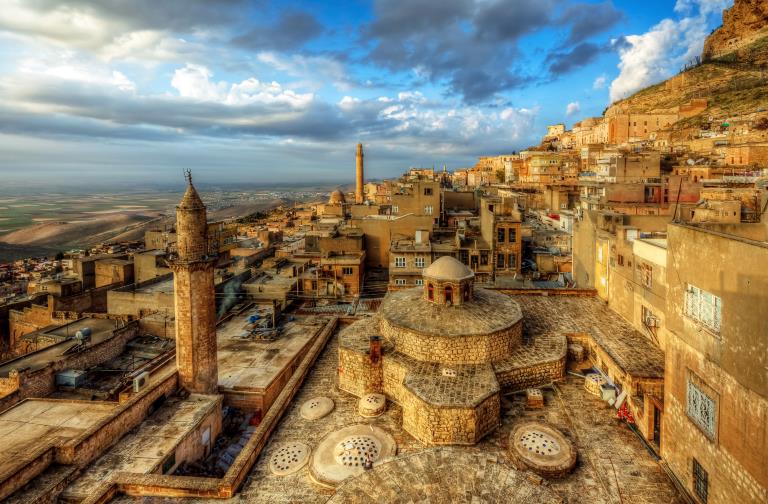Crime in Turkey: What Travelers Need to Know to Stay Safe
Travelers in Turkey are at more risk of being overfed by their hosts than running into any sort of crime. But here's what you need to know before you go to stay safe.
 Photo © Getty Images/Westend61
Photo © Getty Images/Westend61
Travelers in Turkey are more likely to be overfed by the locals than run into any sort of violent crime, but it pays to be careful. Here's what you need to know to stay safe.
- Types of crime in Turkey
- General safety tips in Turkey
- Men's safety tips in Turkey
- Women's safety in Turkey
- What to do if you're in danger
Types of crime in Turkey
Opportunistic crimes like pick-pocketing do occur in Turkey, particularly in the tourist areas of Istanbul like Sultanahmet, Taksim and the Grand Bazaar. To avoid being a target, wear a cross-body bag and close all pockets and zips before you exit a shop or board public transport. Men shouldn’t put wallets or phones in the back pockets of their jeans or trousers. If you see someone watching you on a crowded tram or metro, fold your arms over your bag and keep your eyes on the person. Make it obvious and they’ll think twice.
By law you have to carry your passport on you at all times in Turkey so make sure you keep it secured in a zippered compartment of your bag or inner pocket of a jacket. Passport theft is not an issue to date, but this could change.
Travelers are frequently warned against going to dangerous border areas with Syria and Iraq, because kidnappings by terrorist groups operating there are a major threat. While kidnappings do occur in Turkey, they have mainly involved foreign nationals residing in Turkey, including priests, and women and children with Turkish partners, rather than tourists. Many cities in southeast Turkey are quite safe to visit and definitely worth including on your itinerary.
General safety tips in Turkey
Being on holiday doesn’t mean forgetting basic safety precautions. Like anywhere, visitors should take note of what’s happening on the streets around them, particularly in big cities such as Istanbul, Ankara, Antalya and Izmir.
Stay alert and be aware of events happening in Turkey and elsewhere in the world that might have an impact on you. Keep up to date with local news reports and avoid protests or demonstrations. The presence of police vehicles and street barriers might only signal a highly contested football match but could also lead to a full-on display of tear gas, rubber bullets and arrests.
Even if you think you blend in, more often than not you’ll clearly be a yabancı, a foreigner, especially in smaller cities and towns, attracting stares, comments and sometimes approaches from all and sundry. Don’t panic. Turks are warm and welcoming, sometimes too much so, but usually their intentions are good.
They love to learn about visitors and what they think about their country. You don’t have to answer every question, but make sure never to insult Atatürk (the founder of the modern Turkish Republic), Turkish culture or Islam. It’s OK to talk about religion, as long as you don’t try to say one is better than another.
Don't get involved in any arguments or demonstrations about political issues such as the Armenian genocide, Kurdish separatism, or issues concerning Cyprus. Turks take these topics very seriously, and you could get into serious trouble. Just keep your opinions to yourself.
LGBTQ+ travelers need to be aware that individuals like themselves are generally not well accepted in Turkey. Gender roles are still quite specifically defined, meaning men and women need to worry about different things when traveling.
Men's safety in Turkey
Men traveling on their own in big cities should be wary of overly friendly, well-dressed young men purporting to be local Turks looking to take them out on the town. They usually begin with general chat then say “I know this great club/bar…” If you go with them, more often than not you’ll be joined by other men along with women eager to flirt, and be served copious drinks. At the end of the night, you’ll receive an enormous check. Saying you don’t have the cash won’t help as they’ll escort you to the nearest ATM. Refusal to pay could result in you being roughed up, your wallet stolen, and all your valuables taken.
It’s pretty easy to avoid finding yourself in this situation. Just say no or pretend you’re meeting up with friends.
Women's safety in Turkey
Turkey’s secular and moderate Islamic traditions means women are fairly visible in public life but they are still expected to fit into traditional roles. This has an impact on how locals view women traveling solo.
Female tourists, especially if they have blue eyes, long legs and blond hair will often be asked “Rus mısın?” (Are you Russian?). It’s code for “Are you a sex worker?” This is largely due to misleading media reports. I’m a redhead (at the moment) with blue eyes and when I get this question I know the men who ask me are poorly educated. Rather than responding to their ignorance with anger, I politely say “Hayır, Avustralya’liyim” (No, I’m Australian). Mostly they apologize profusely and leave me alone.
However, if a man touches you or follows you, tell him to stop very loudly, so people around you can hear. Common phrases to use are:
- Dur (pronounced "Dour") = Stop it!
- Çok ayıp (pronounced "Chock Eye-yep") = Very shameful!
- Birak beni (pronounced "Beh-rahk ben-ee!") = Leave me alone!
- Polisi arıyorum (pronounced how it looks) = I am calling the cops!
Turks are extremely proud of their country and want you to see its best side so will go to great lengths to remove an offending man.
Women should always be careful about traveling by themselves at night in the cities, sadly necessary no matter where you are in the world. Take a cab if you’re nervous about walking to your accommodation on your own.
Violent religious crime is generally not part of the visitor experience in Turkey. Dress codes require both sexes to dress modestly to enter mosques and tombs. While inside, women should cover their hair, legs and upper arms. If you are approached by a person complaining about your attire, apologize and accept the covering they are likely offering, or leave. It’s not necessary to wear a headscarf in the countryside, but you will garner more respect and interactions with locals, particularly women, if you dress more conservatively. Wearing shorts that stop mid-thigh is still frowned upon in some areas, especially in the east and south east of the country.
What to do if you're in danger
If you feel you're in danger of being attacked or you have been attacked and want to report it to the police, dial 112. The call is free of charge.
Luckily however, most travelers leave Turkey having met warm and generous people, seen incredible archeological and historical sites and eaten a greater variety of Turkish food than they knew existed.
Related articles
Simple and flexible travel insurance
You can buy at home or while traveling, and claim online from anywhere in the world. With 150+ adventure activities covered and 24/7 emergency assistance.
Get a quote

No Comments